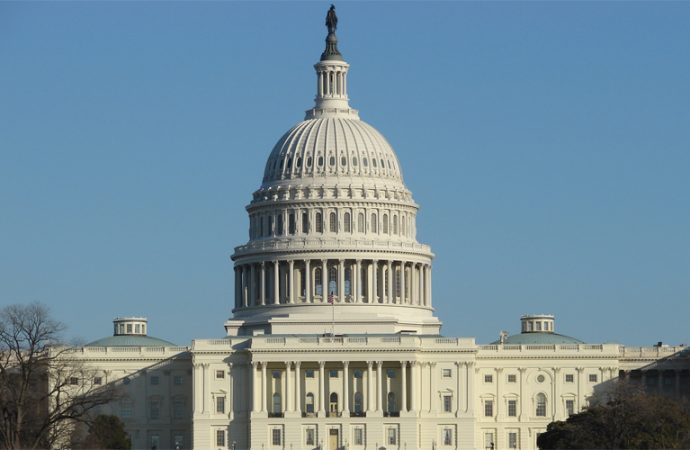Conservatives traditionally have supported the Senate filibuster because, supposedly, it puts the brakes on expansion of government. I’ve long thought conservatives should reconsider. With Democrats planning to filibuster President Trump’s nominee for the Supreme Court, a good time to reconsider is now.
That’s because history shows that, on balance, the filibuster doesn’t put the brakes on big government. It protects big government.
The Senate’s filibuster system lets a minority of Senators block legislative action by making long speeches (i.e., “filibustering”) on the floor.
The Senate adopted the filibuster in 1806. Its source is a Senate rule—not the Constitution.
The Filibuster Helps Assure a One-Way Ratchet to Bigger Government
Conservatives often favor super-majority requirements because they think it (1) stalls government action and (2) assures us that when government does act, its measures benefit a very broad segment of the public. But hard experience show that the filibuster has not restrained the growth of the federal government. Instead it has helped create a one-way ratchet whereby the federal government sometimes expands, sometimes remains constant, but never shrinks.
One reason appears to be a large, highly organized and permanent pro-government element in national politics. It’s like an indigestible lump in the body politic, always there no matter who wins the election. This lump includes the mainstream media, the education establishment, the bureaucracy, powerful lobbying groups like the AARP, and a paid, professional “protesting class” that calls itself “Occupy Wall Street” one day, then reinvents itself as “Black Lives Matter,” then morphs into the “Women’s March.” In practice, this permanent pro-government element amplifies the effect of liberal electoral victories while diluting the effect of conservative victories. As a result, in the U.S. Senate liberal majorities sometimes become super-majorities, while conservative majorities almost never do.
Another reason the filibuster is a one-way ratchet may derive from the different amount of respect conservatives and leftists have for rules. A very basic illustration comes from the different ways the two sides treat the laws against littering: When conservative “Tea Party” groups rallied a few years ago, they cleaned up their rally sites when the rally was over. By contrast, lefty groups like Occupy Wall Street and the Women’s March leave behind huge messes for the long-suffering sanitation workers to handle. Similarly, in national politics, conservative deference to rules induces them to respect liberal filibusters.
The Left Undercuts the Filibuster When Inconvenient
All too often, the respect is not reciprocated. Here are some historical examples:
* In 1917, the “progressive” Senate adopted Rule 22 at the request of President Woodrow Wilson to allow cloture for the first time—by a two thirds majority.
* In 1965, Senate Democrats enjoyed a 67-32 majority, which enabled them to override any filibuster possibility and enact Medicare and Medicaid—thereby rendering the federal government the dominant player in American health care.
* In 1975 a liberal Senate reduced the cloture margin to 60. Note that when Senate conservatives recovered their majority, they did not reverse this action.
* In 2007, a liberal Senate used a technique called “reconciliation” to override a filibuster threat and pass the College Affordability and Accountability Act. That measure assured greater federal control of higher education.
* In 2010, a liberal Senate did the same to adopt Obamacare.
* In Nov. 2013 a liberal Senate adopted the so-called “nuclear option” to abolish filibusters on presidential nominees. But they carefully excepted the Supreme Court from the change, so liberals still could filibuster against appointment of more originalist justices in the mold of Clarence Thomas and Antonin Scalia. This change was not reversed when the Republicans took control of the Senate in 2015.
Note how the filibuster rule was swept aside when it stood athwart a liberal majority’s wish to expand government. I was able to find no instances in which a Senate majority lifted the filibuster to reduce the size of government.
In some countries, the size of government has been reduced significantly in recent years. Illustrations include Margaret Thatcher’s Britain and Roger Douglas’ New Zealand. However, the parliamentary majorities accomplishing this were never super-majorities. Had the filibuster rule been in effect in those countries, both would still be languishing in socialist stagnation.
An earlier version of this article appeared in Townhall.com.








